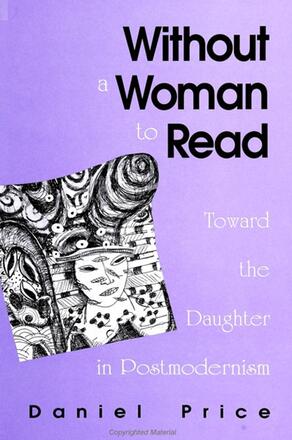
Without a Woman to Read
Toward the Daughter in Postmodernism
Alternative formats available from:
A philosophical questioning of reading and writing that focuses on metaphors of women and women's roles in our cultural and intellectual heritage.
Description
Without a Woman to Read enacts a new metaphorical thinking of political and social space around the questions of silence and voice, reading and writing, maternity and paternity, faithless daughters and transcendent sons. Price's interrogations of the tradition find a new space between primary and secondary sources, orchestrating the conjunction and disjunction of political, social, and aesthetic themes within postmodernism. In that sense, the book belongs to several discourses—postmodern philosophy, political theory, feminism, psychoanalysis, and literary theory—at the same time that it transcends any particular discourse.
An essay in the reconfigurative and transformative possibilities of metaphor, the book not only enacts a deconstruction, and possible reconstruction, of the metaphorical space of woman but also turns in toward the political questions of creating a world that we could live in through responding to, and working toward, its constantly transforming metaphors. At the heart of the project lies a reevaluation of Levinas's ethical ontology as a response to the traditional metaphysics of structured exchange—of the giving and withdrawing of God in Christ, or of linguistic signs in the place of real presence—through a reconfiguration of the metaphorical play of sisters, mothers, and daughters.
Daniel Price teaches in the Department of Philosophy at DePaul University.
Reviews
"Written in the interrogative mode, this work is a questioning of reading and writing that goes far beyond the usual postmodern revisioning of these themes. Instead it attempts to adumbrate these problems by an analysis of the she who speaks the plight of postmodernity. Using the work of feminist thinkers such as Margaret Homans, Luce Irigaray, and Judith Butler, Price analyzes mother, sister, and daughter as conceptual personae. Levinas's ethical critique of philosophy provides an additional focus for understanding freedom as prior to choice as actualized in rule-bound decision making. Combining unbridled exuberance and vivid imagination with exemplary scholarship, Price has written a work that moves toward a new understanding of the interplay of traditional philosophy and its other. " — Edith Wyschogrod, Rice University